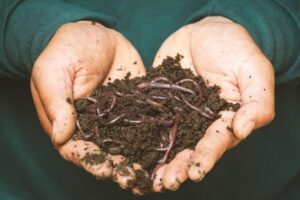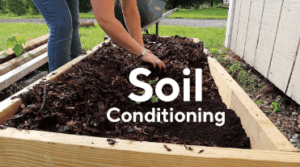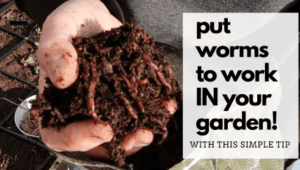Vermicompost – A Boon For Your Yield
Vermicomposting, also known as worm composting, is a method of using worms to break down organic waste and turn it into a nutrient-rich soil amendment. This process has many benefits for both the environment and for gardening and agriculture.


One of the primary benefits of vermicomposting is that it reduces the amount of organic waste that ends up in landfills. Organic waste, such as food scraps and yard waste, can take up a significant amount of space in landfills and release methane, a potent greenhouse gas, as it decomposes. Vermicomposting allows this waste to be repurposed and used to improve soil health.


Another benefit of vermicomposting is that it produces a high-quality compost that is rich in nutrients and beneficial microorganisms. This compost can be used to improve soil health, promote plant growth, and reduce the need for chemical fertilizers. Vermicompost is also known to improve soil structure and water retention, which can help to reduce water usage and erosion.


Vermicomposting also has environmental benefits by reducing the emissions of greenhouse gases such as methane, which is produced by decomposition of organic matter in landfills.
Vermicomposting can be done in small spaces, such as apartments or backyards, making it an accessible option for people of all living situations. It is a great way for individuals to reduce their environmental impact and promote sustainable living.


Additionally, vermicomposting can also be used for educational purposes, teaching children about sustainability and the benefits of composting.
![]()
![]()
In conclusion, vermicomposting is a simple and effective way to reduce organic waste and improve soil health. It is an environmentally friendly and sustainable alternative to traditional composting methods, and it can be done in small spaces and has educational benefits as well.



